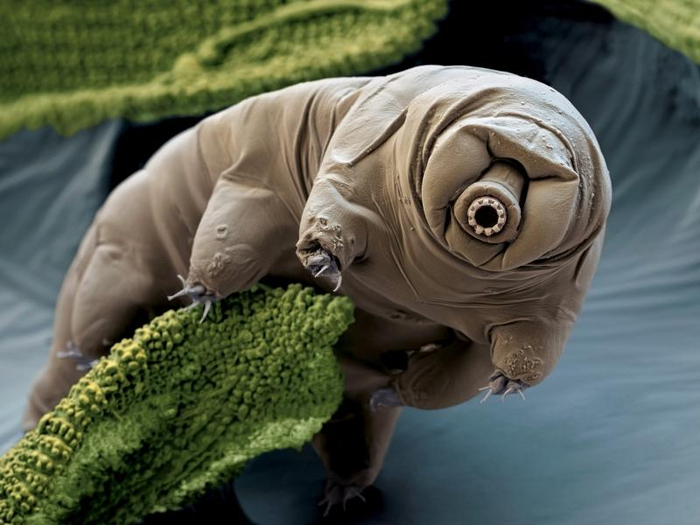
A recent study has called into question the idea that tardigrades or “water bears”, tiny create length in fractions of inches, have about 17% foreign, borrowed DNA. Last year a study appeared in the proceedings of the National Academy of Sciences, suggested that about 1/6 of the DNA of animalcules largely taken from bacteria.
At that time the news was amazing. It turns out that these tiny and almost invincible creatures possess the ability to use vast amounts of DNA of other species?
Well, maybe not. A new study also appearing in the proceedings of the National Academy of Sciences, have lowered the figure at 17%: instead, a tiny creature can have less than 1% of genes borrowed from other species.
The study’s authors from the University of Edinburgh claim that 17% of previous studies were due almost entirely undetected bacterial contamination data sequenced genome, and not alien DNA.
And one percent, scientists say, it is not surprising.
“We hope that this document will finally correct the scientific record, says the study’s lead author mark Blaxter from the University school of biological Sciences. — Tardigrades — the amazing organisms, but these assumptions about their DNA go too far, even for eight-legged”.
And yet, tardigrades, regardless of how little they have alien DNA, amazing. They can endure extraordinary temperatures and pressures, without food, to withstand strong radiation and even go into space without a spacesuit. Some frozen, and after them raised up after 30 years spent in the ice at -20 degrees Celsius.
These resistant creatures can be found in water (marine or freshwater) in the soil, in mosses and lichens everywhere, regardless of the climate.
